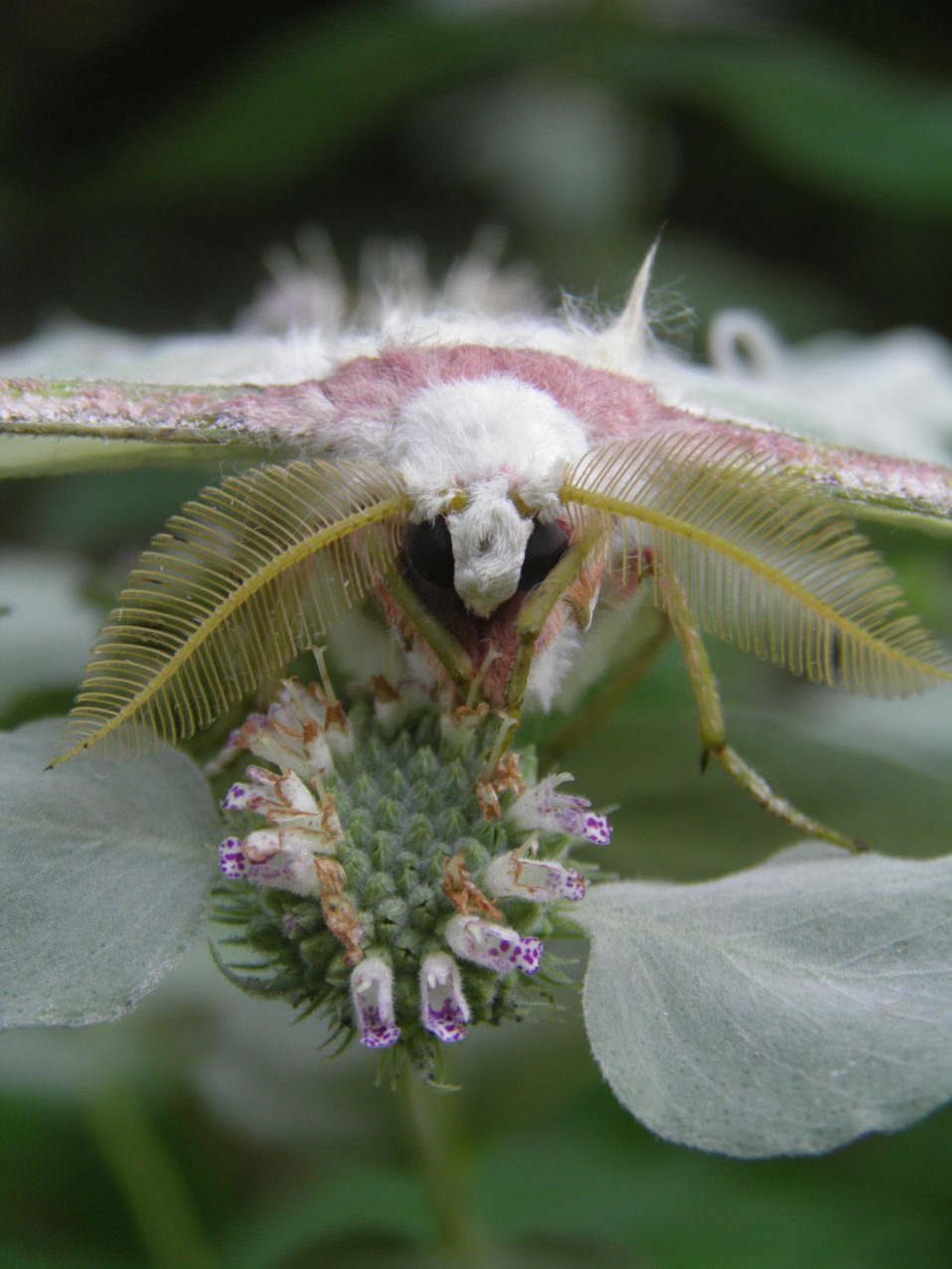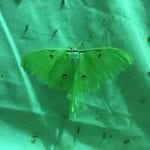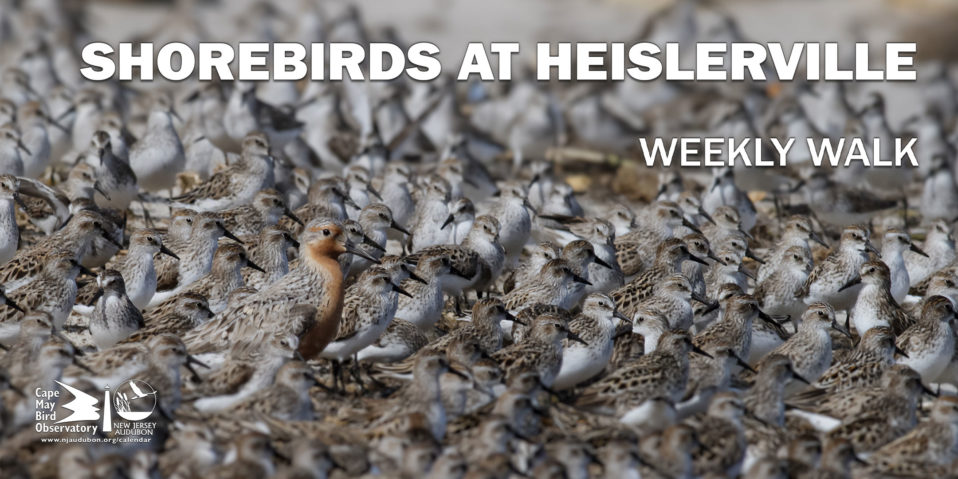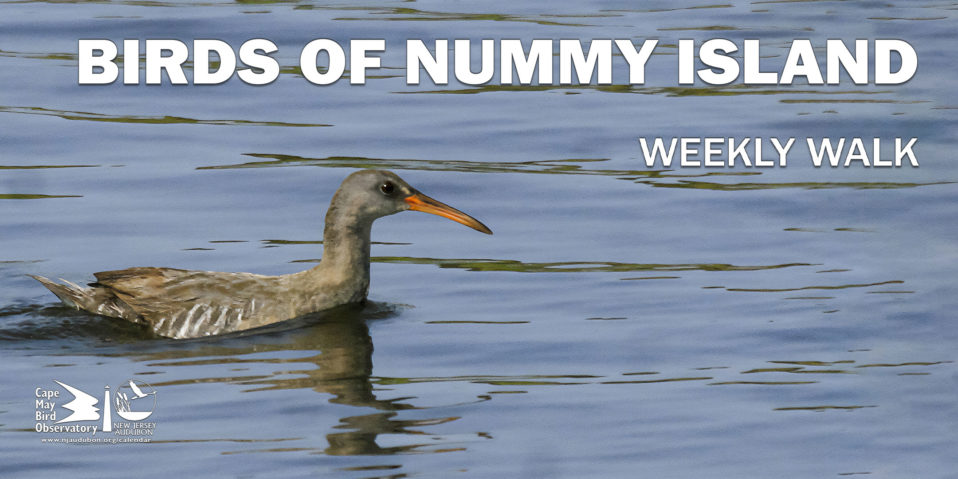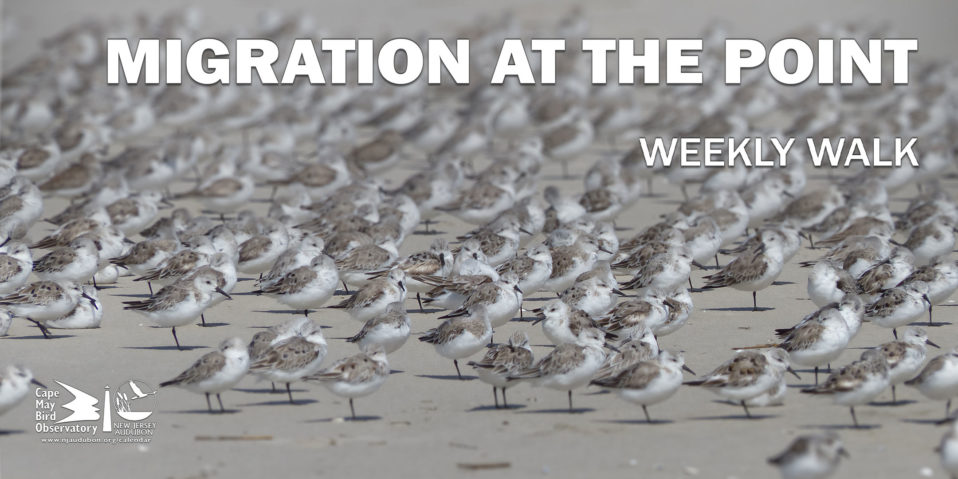July 20-28, 2019 is National Moth Week
While gardening for butterflies is popular, don’t forget about gardening for their nocturnal counterparts – moths. Caterpillars and adult moths eat differently so make sure to provide food sources for both life stages. Some moth caterpillars are generalists who eat the leaves of a wide variety of plants, while many moth caterpillars are specialists which means they are restricted to eat a few types of plants or even just one species of plant. Let’s explore how to attract two of NJ’s native moths.
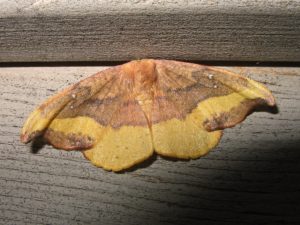
Rose Hooktip Moth -Photo by Chris Magarelli
Rose Hooktip Moth (Oreta rosea): The rose hooktip caterpillar are specialists on Viburnum species, with a strong preference for Viburnum dentatum or arrowwood viburnum. The arrowwood is one of the most useful native shrubs in the state, benefiting many species of wildlife. The dense brush provides cover and nest sites for birds, produces nectar and pollen for pollinators, and is an important food source for caterpillars. Search your arrowwood leaves starting in late spring for this easy to identify caterpillar as it resembles a dead leaf and is the only caterpillar species with a long tail like point.
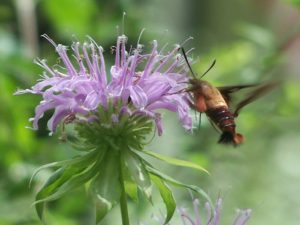
Hummingbird Clearwing Moth on Wild Bergamot – Photo by John Parke
Hummingbird Clearwing Moth (Hemaris thysbe): The only constant in nature is that there are always exceptions to the rule. While many moths are nocturnal, there are some that are diurnal meaning that they fly around during the day, like the hummingbird clearwing. Aptly named due to flying similarities to hummingbirds, both the caterpillar and the adult are generalists. Caterpillars will eat honeysuckle foliage while the adult moths will sip on the nectar so planting our native coral honeysuckle, Lonicera sempervirens, is a great place to start and support both life stages. The adults will also sip nectar from beebalm, clover, phlox, blueberry, and thistle.
As the sun goes down and the sky darkens, grab your headlamp and field guide, head out to your garden and identify your nighttime visitors. How many species can you count?
Join NJA for three programs about moths during National Moth Week:
July 21st 2:00-3:30 p.m. Moths and Other Pollinators at Scherman-Hoffman Wildlife Sanctuary
July 23rd 8:30-10:00 p.m. Spotlight on Moths at Cape May’s Northwood Center
July 26th 8:00-12:00 p.m. Moth Night at Plainsboro Preserve
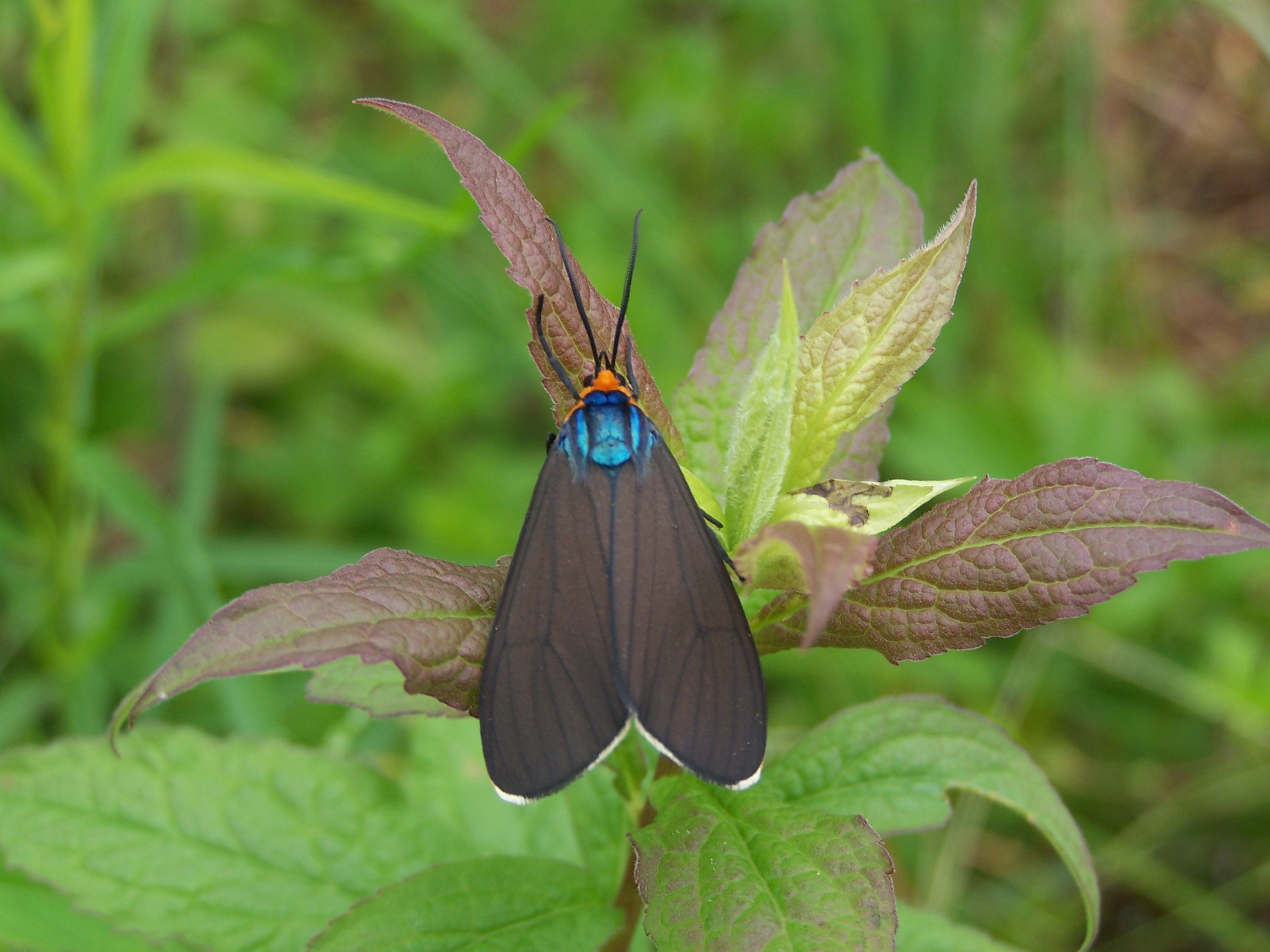
Virginia Ctenucha Moth – John Parke
Kristin T. Hock
Habitat Outreach Coordinator
New Jersey Audubon




